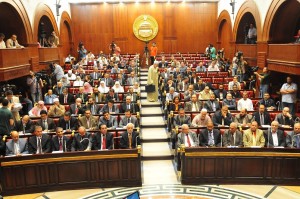PARIS: A press freedom watchdog took Egypt and Tunisia off its online censorship blacklist following their recent revolutions and awarded a web media award to Tunisian news bloggers on Friday.
In Egypt, "the heavy filtering (of internet sites) at the height of the revolution has reportedly ended," said Reporters Without Borders (RSF) in an annual report on the eve of its World Day Against Cyber-Censorship.
The ousting of former ruler Hosni Mubarak "is a chance to entrench greater freedom of expression, especially online."
Tunisia meanwhile "is awakening to internet freedom after being one of the world’s most harshly censored under the rule of president Zine El Abidine Ben Ali, who was overthrown in January," it said.
The Paris-based NGO’s updated blacklist of "Enemies of the Internet" retained several countries it regularly accuses of infringing freedom of expression online, including Saudi Arabia, China and Iran.
Tunisia and Egypt moved onto a secondary watch-list which includes three democracies — Australia, France and South Korea. RSF cited measures to police web content in these countries that it says threaten online freedom and access.
RSF and search giant Google meanwhile said they were handing their annual "Netizen Prize" to the founders of a Tunisian blogging group, Nawaat, which covered the unrest in Tunisia’s popular uprising in December and January.
Launching its global anti-censorship day, RSF said it counted 119 people "currently detained for expressing their views freely online, mainly in China, Iran and Vietnam," it said.
"Never have so many countries been affected by some form of online censorship, whether arrests or harassment of netizens, online surveillance, website blocking or the adoption of repressive internet laws."
